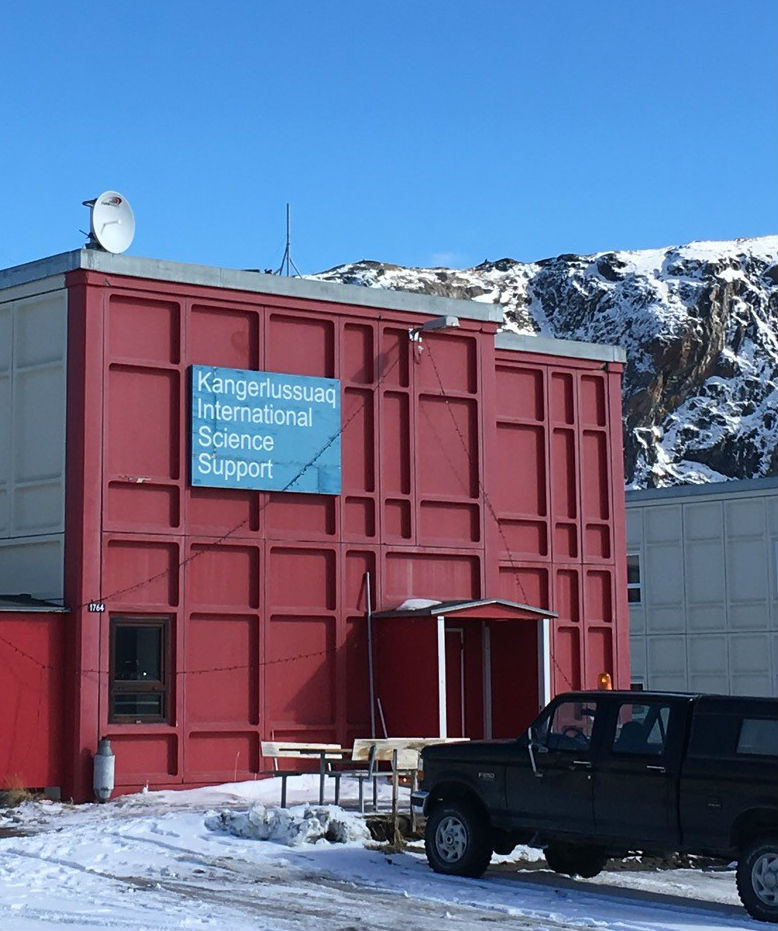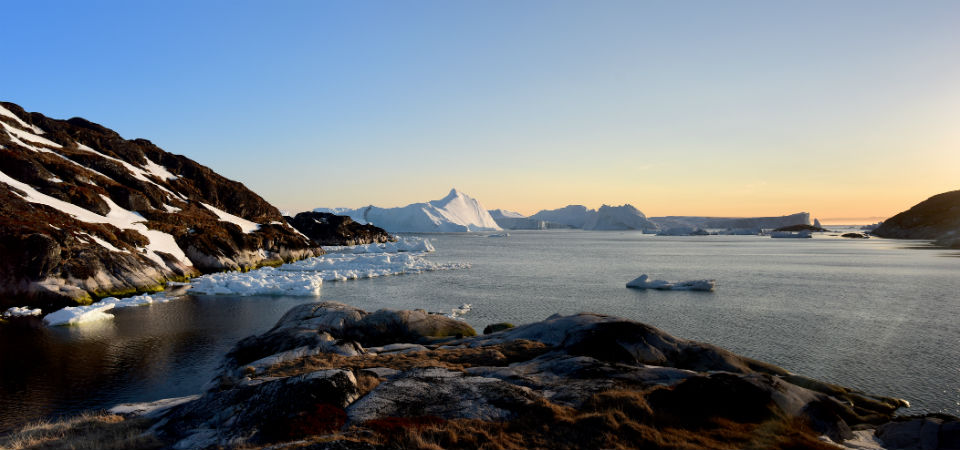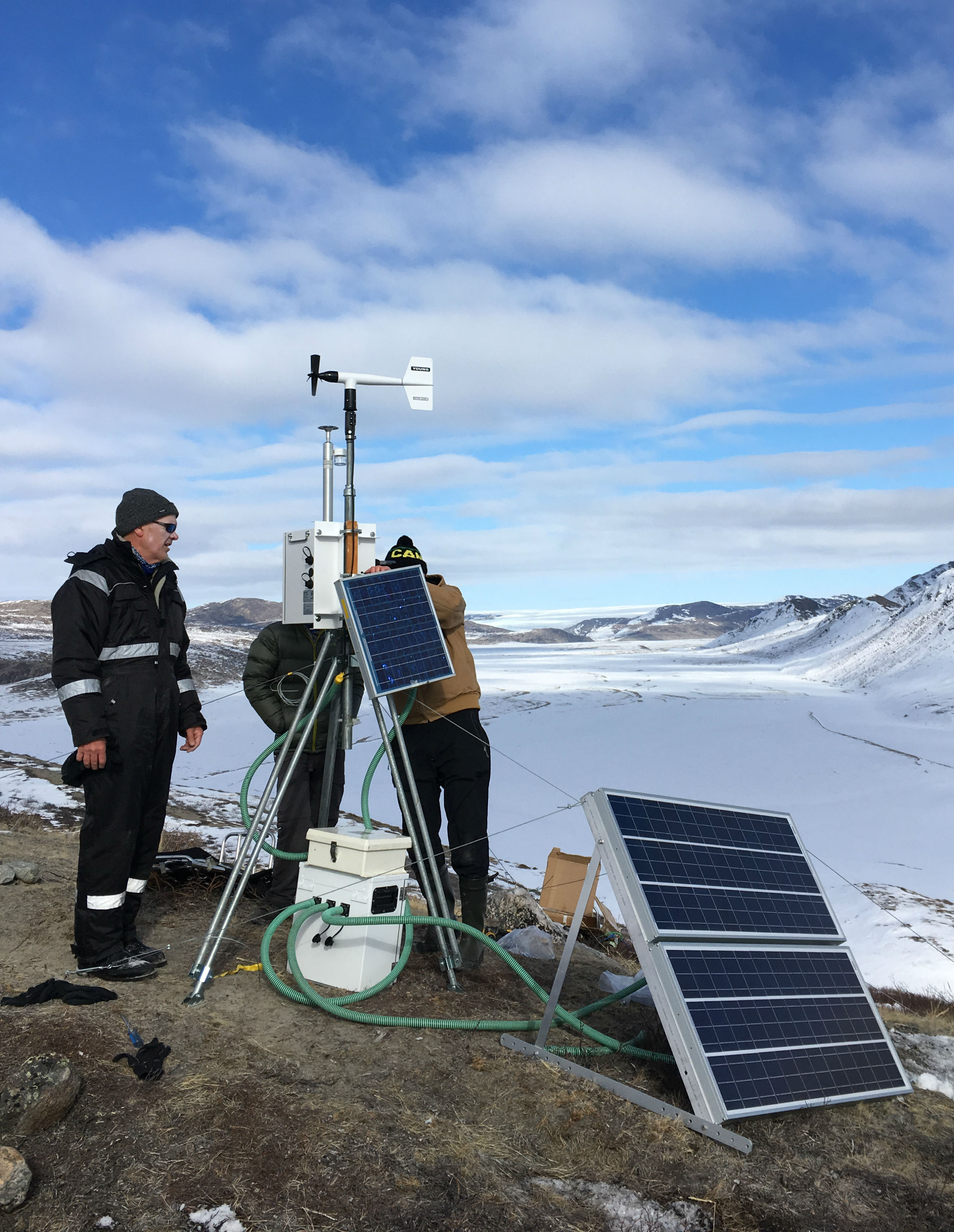Eight members of the Westminster group (APPG), including chairman James Gray MP, will spend two days with Professor Joanna Bullard and colleagues in the south-west of the country, near Kangerlussuaq.
The group will be shown several field sites in Greenland to get an insight into the effects of environmental change on natural processes in the Arctic, such as the ecological impacts of wind-blown dust on remote lakes and soil.
Prof Bullard, from Geography and Environment at Loughborough University, will introduce the visitors to the Kangerlussuaq science station, used by researchers from Loughborough and all over the world, before heading out into the tundra.
She said: "We will travel from the base to the margin of the Greenland ice sheet where we can show members of the APPG some of the lakes where we're working.
"Our project focuses on the importance of locally-derived wind-blown dust as a source of nutrients to remote Arctic lakes."
The team visited Greenland in April to replace dust traps – which capture high-latitude particles to learn how dust in the earth-atmosphere-ocean system affects Arctic ecosystems.
Some of the dust has been trapped within ice for centuries and only recently been released by the melting west Greenland ice sheet, other material is recycled from Arctic soils.

The Arctic research station, dubbed 'the Lego brick', used by Loughborough academics during field trips
Prof Bullard said: "On average there are about 16 dust storms per year in the area and over the past 20 years these have been increasing in severity.
"We currently have dust samplers within several lake catchments to trap windblown sediments – we are using these samples to quantify the amount and type of sediments and nutrients going into the lakes, and importantly to find out the timing of the inputs in relation to ecological activity within the lakes as this affects carbon uptake.
"We will also be guiding members of the APPG through one of the near-ice dune fields to climb up to one of the instrumentation towers being used to quantify dust emissions from the glacial floodplains.
"These instruments measure the concentration of aerosols (dust) in the atmosphere every two minutes and provide data on the precise timing and magnitude of dust storms."
The Loughborough project is part of a three-year NERC-funded collaborative project with The University of Nottingham and British Geological Survey.
 Arctic lake and glacier near to Kangerlussuaq
Arctic lake and glacier near to Kangerlussuaq
The Parliamentary trip to Greenland, made up of 8 MPs and Peers, is part of a week-long visit, between August 23 and August 31, focused on Arctic Policy, the UK's interests in the Arctic and UK-funded Arctic research.
The APPG is, James Gray MP (Con), Mark Menzies MP (Con), Theresa Villiers MP (Con), Brendan O’Hara MP (SNP), John Mann MP (Lab), Stephen Hepburn MP (Lab), Baroness Neville-Jones (Con) and Baroness Smith of Newnham (Liberal Democrats)
A spokesman for the APPG said: "In August, the APPG is leading a group of 8 MPs and Peers will travel to Greenland to learn more about the challenges and opportunities facing Greenland as the Arctic heats up.
"Over the course of 8 days, the group will meet with Danish and Greenlandic officials, business associations, environmental NGOs and scientific organisations.
"A key focus of the trip will be to learn more about how what it is happening in Greenland affects the UK – since one of the main UK interests in Greenland is scientific the group is delighted to have the opportunity to visit a team of British based researchers from Loughborough to learn more about their work in Greenland."
ENDS

